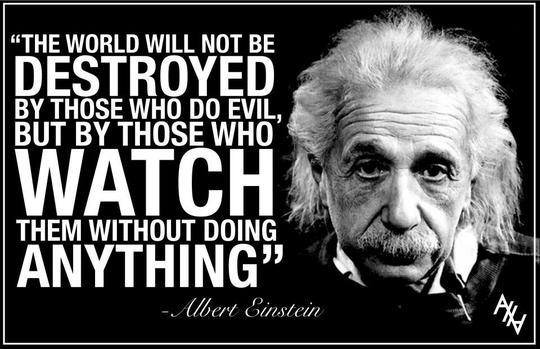Are your prescription drugs causing you more harm than good? Is it affecting your family, work, social life...? Even so, finding it hard to stop?

This website should be visited by all doctors and members of the public, especially those who have been prescribed benzodiazepines or other psychotropic drugs. All could benefit from the 14 years of work and dedication that Wayne has devoted to the subject.
Heather Ashton: Emeritus Professor of Clinical Psychopharmacology, University of Newcastle upon Tyne, England.
See all Reviews / Endorsements
Top of Page
Were your prescription drugs prescribed for sleep, anxiety, stress, muscle relaxing etc? Or is it possible you have been given them as "off label" prescriptions for something else?
Due to the large amount of different brand names, and cases of inadequate consent, a great number of people are being unwittingly prescribed benzodiazepines and similar drugs without even knowing it. It is highly possible they are suffering from dependency without even understanding what is happening to them or why...
Unfortunately, the problem has become so common that you may know of someone who is struggling with a prescription dependency.
This website contains information, including the Ashton Manual about benzodiazepines and how to withdraw, general resources, and court documentation (benzo case) that may be of help to doctors, lawyers, countless victims and indeed the general public.
Top of Page
- Could your prescription be a type of benzodiazepine or similar drug?
- How addictive are benzodiazepines?
- Could you (or someone you know) be dependent?
- Do you know what to do if you are dependent?
- Does your doctor have adequate knowledge?
- Have you received proper informed consent?
- Have you received proper monitoring (for potential forming of dependency)?
- Are medication package inserts reliable?
- How does the (legal) benzo problem compare to cases of illegal drug use?
- How do these problems affect people who have have never taken benzos?
- Who’s responsible for these problems?
- What needs to be done to improve the situation?
- How difficult is it to pursue a compensation case (litigation)
- What are dependency and withdrawal like? (for unfamiliar general public)
Top of Page

“First, I pay tribute to the hon. Gentleman Jim Dobbin who has campaigned strongly on this issue over many years. I join him in paying tribute to Professor Ashton, whom I know has considerable expertise in this area.
He is right to say that this is a terrible affliction; these people are not drug addicts but they have become hooked on repeat prescriptions of tranquillisers...”
Rt. Hon. David Cameron MP, Prime Minister, October 23, 2013.
Top of Page

Dear Wayne,
Well done for all you are doing to get information out there about the risks associated with these drugs and I hope you educate many people in the course of your campaigning.
Kind Regards
Jim
Jim Dobbin MP
House of Commons, London
See all Reviews / Endorsements
Top of Page

In August 2014, my name was put forward to attend an International Inquiry into the social harms caused by dependency on prescribed medicines particularly benzodiazepines and antidepressants. The inquiry was planned by The House of Commons Home Affairs Select Committee, and was to be held at Westminster Parliament in 2014; however, following the unfortunate passing of Chairman, Jim Dobbin, the inquiry was postponed indefinitely.
Top of Page
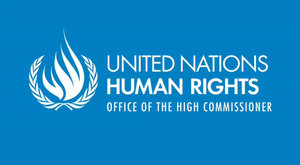
Human Rights Act 1998, ARTICLE 3, Prohibition of torture: "No one shall be subjected to torture or to inhuman or degrading treatment or punishment.”
Unfortunately, this act has been systematically broken worldwide over many decades by the medical profession and prescribers of benzodiazepines and other dangerous drugs.
Consider: Pharmaceutical Rape is not a Metaphor, Prof. David Healy, January 18, 2016.
Consider: The following article about American military chiefs developing plans to use Valium (benzodiazepine) as a potential weapon against enemy forces.
“...British officials backing campaigners’ claims that using drugs such as Valium or other calmatives would be outlawed under the 1991 Chemical Weapons Convention. This protocol prohibits any chemical which can cause death, temporary incapacitation or permanent harm.”
It beggars belief that British officials are so concerned of breaching the Chemical Weapons Convention and yet these drugs have been so freely prescribed to ordinary people worldwide for decades (See News).
Not to mention that Xanax and Klonopin, prescribed widely in the USA, are 20 times more potent than Valium (Diazepam) − facts the Pentagon must be well aware of...
Top of Page

The 2014 ISAM (International Society of Addiction Medicine) World Congress was held from October 2nd ~ 6th at the Pacifico Yokohama Conference Center in Yokohama, Japan.
I had the opportunity to present on October 6th, 2014 for the purpose of highlighting the dangers of misprescribing benzodiazepines and similar drugs.
Top of Page

In April 2015, I had the opportunity to take part in a meeting at Medwatcher Japan in preparation for a written request to the Japanese government; demanding stricter controls for prescription benzodiazepines. The request was submitted by Medwatcher Japan on 28th October 2015.
Read Here See Original Download PDF
Top of Page
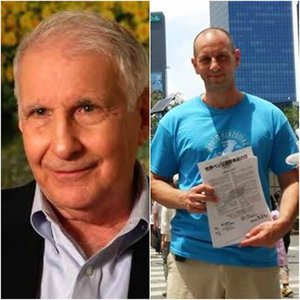
Dr. Peter Breggin on the left and me wearing my World Benzodiazepine Awareness Day shirt in Tokyo on July 11.
This first show is about how I went through benzo hell and lived to tell the tale, my experiences in the Japanese court system, and surviving the Fukushima earthquake and subsequent nuclear meltdown.
Click below for sucessive shows.
Top of Page
My motivation: Many people have asked me why I fought as far as the Supreme Court of Japan and why I decided to set up this website.
Regarding the former, I felt it was just simply wrong – people shouldn’t go to their doctor and come away suffering like that. I could see there was a significant problem in the current medical world that was affecting not only me but many others as well. I felt the problem needs to be brought to the attention of the authorities and there needs to be some accountability.
Regarding the later, knowing what prescription dependency is like, and being aware of the Effects on Us All, I felt the need to do something so that others aren’t led into suffering the same fate. This gave way to the idea of establishing this website.
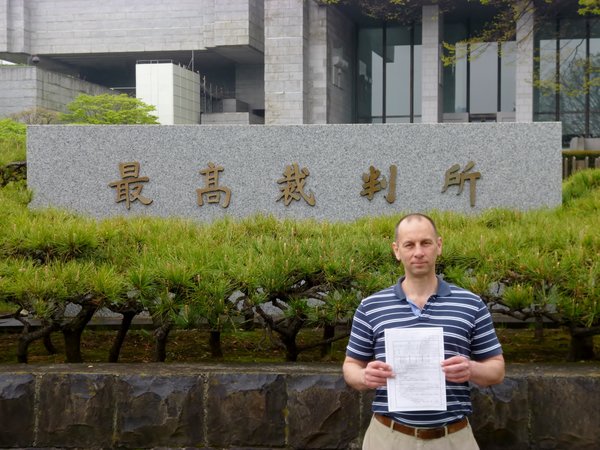
Me outside the Supreme Court of Japan with final decision in hand
I fought a torrid battle (in Japanese) through to the Supreme Court of Japan to help get recognition for the pain and suffering caused by prescription benzodiazepines. This is a serious problem that affects many of us worldwide.
I continued with this quest by making my Supreme Court appeal alone in Japanese (without any representation) during the 3/11 disaster (Great Eastern Japan Earthquake) as I vacated my adopted hometown of Fukushima in the midst of radiation fallout, rotational blackouts, aftershocks, job loss and homelessness.
My lawyer fought this case with me in earnest, as far as the Tokyo High Court, to try and set a precedent with a view to lobbying for safer benzodiazepine prescription guidelines in Japan, and to help raise greater awareness in general (as this is a worldwide problem).
Top of Page
This short video clip shows just how dangerous benzodiazepines can be highlighting the need for proper management, information sharing and support which according to experts is severely lacking worldwide.
In the above video they say “More than one-third of people taking benzodiazepines for more than 8 weeks become dependent on them”. The source for this info is unclear, but there have been reports of some individuals becoming dependent in just a couple of weeks or less.
Further withdrawal reactions / syndromes can continue for many years in some cases depending on individual factors with some reports of long-term and even permanent complaints. Therefore, it is important to listen to those who have experienced it.
"Misused"? How about "Misprescribed"? See "Stop the Stigmatization" below.
Top of Page
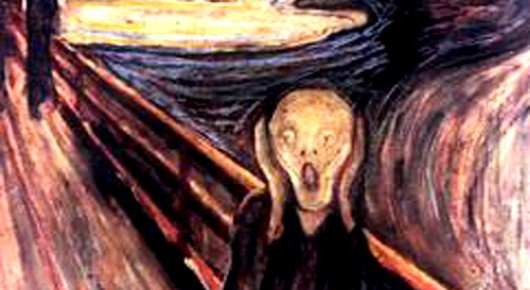
Withdrawal can also be protracted lasting for months or years.You wouldn’t wish it on your worst enemy!
Benzodiazepine withdrawal is a severe illness. The patients were usually frightened, often in intense pain, and genuinely prostrated. The severity and duration of the illness are easily underestimated by medical and nursing staff, who tend to dismiss the symptoms as "neurotic." In fact, through no fault of their own, the patients suffer considerable physical as well as mental distress (See Benzodiazepine Withdrawal: An Unfinished Story).

- Benzodiazepines (BZs) are the most widely prescribed drugs for anxiety, stress and sleep. Also prescribed for depression (see point 13 below), pain, muscle relaxation and much-much more...
- The Committee on Safety of Medicines and the Royal College of Psychiatrists in the UK concluded in various statements (1988 and 1992) that benzodiazepines are unsuitable for long-term use and that they should in general be prescribed for periods of 2-4 weeks only (See The Ashton Manual).
- The evidence suggests that benzodiazepines are no longer effective after a few weeks or months of regular use, so when prescribed for regular use beyond this, the risks can outweigh any potential benefits.
- Experts say BZs can be more addictive than heroin. Prescribing beyond the recommended period can result in doctor induced dependency and associated injuries / damages.
Top of Page
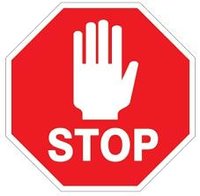
In much of the media (even in the video above) many reporters tend to use the unfortunate words “abuse”, “misuse”, “addicts” etc. when referring to patients or individuals.
Without being put into proper context, these types of words are stigmatizing many innocent people (otherwise normal everyday people) who were simply following their doctor’s orders.
Many of these people are suffering beyond all realms of imagination through no fault of their own. They need support, not stigmatization!
Stigmatization is driving the problem underground creating the perfect environment for maintaining drug sales but this causing every one of us in society a great deal of damage; either directly or indirectly.
It is interesting to note that many of the genuine drug “abuse / misuse” cases that do exist in our society have sometimes been precipitated by habit forming prescription drugs (sometimes from adolescence) which can form a gateway to so-called “abuse / misuse" along with the associated crime etc.
In either case, there is a lot to answer for. Is much of the “abuse / misuse” we see today not arising from the over medicalization of society?
Top of Page
"There is an epidemic in the making"
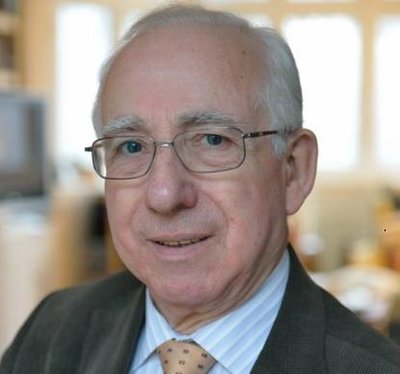
Professor Malcolm Lader: Emeritus Professor of Clinical Psychopharmacology, Institute of Psychiatry, University of London, England, Adviser to the World Health Organisation on drugs used in psychiatry (Ran a Benzodiazepine Withdrawal Clinic in London and has published more than 100 papers on the subject of benzodiazepines).
Experts say, compared to other addictive drugs, benzodiazepines are some of the most difficult to withdrawal from.
“It's more difficult to withdraw people from benzodiazepines than it is from heroin – it just seems that the dependence is so ingrained and the withdrawal symptoms you get are so intolerable that people have a great deal of problem coming off. The other aspect is that with heroin usually the withdrawal is over within a week or so. With benzodiazepines a proportion of patients go on to long-term withdrawal and they have very unpleasant symptoms for month after month and I get letters from people saying that it can go on for 2 years or more. Some of the tranquilliser groups can document people who still have symptoms 10 years after stopping.” (Source: Professor Malcolm Lader, BBC Radio 4, Face the Facts, broadcast on March 16, 1999)
In 1978, Prof. Lader called these drugs "the opium of the masses" because of the very high prescribing rates. In 1981 he warned that in the context of tranquilliser addiction "there is an epidemic in the making" and in 1988 he stated that this was the biggest medically-induced problem of the late 20th Century (Source: http://www.benzo.org.uk/lader2.htm).
And guess what? Nothing's changed...See "Who's Responsible?"
Top of Page
The Ashton Manual is available here

I feel honoured to have had the opportunity to assist with the translation of The Ashton Manual in Japanese. Prof. Ashton has kindly granted permission for an HTML version of the manual to be hosted on this website in Japanese and English enabling easier access for both PC and cell phone users.
Top of Page
Not Just Benzos...
Although my case and this website focus on benzodiazepines, there is also a great deal of other psychotropic drugs (e.g. antidepressants, antipsychotics, opiates for pain etc) being mindlessly overprescribed to people from all walks of life including children, the elderly, disaster victims etc. which is seriously affecting all corners of society (See Effects on Us All).
WARNING
- Any information given on this site should not be substituted for the advice of a physician who is well-informed about benzodiazepine dependency and withdrawal.
- All information given here is therefore to be followed at your own risk (See Disclaimer).
- Abrupt cessation of benzodiazepines may be very dangerous. Always consult your prescriber if you are considering making any changes.

This website has been constructed by me personally for the purpose of raising awareness about doctor induced benzodiazepine drug dependency and litigation problems.
The purpose of this site does not include any form of retribution. Also, for privacy reasons the defendants’ names along with certain other names have been omitted from all public documentation contained herein.
There are no other persons / parties involved and it in no way represents any organization or activist type movements.
It is not intended as medical or legal advice – please see Disclaimer.

The primary language of this website is English. Japanese appears as translations only (except for some original court documents).
These translations have been done by many different translators including me. Therefore, there are differences in quality and styles.
Please understand that I am not native Japanese and subsequently there are parts that may sound unnatural in Japanese.
“Benzodiazepine addiction is a terrible affliction; these people are not drug addicts but they have become hooked on repeat prescriptions of tranquillisers.”

PM David Cameron
October 23, 2013
THE WRITING IS
ON THE WALL
for benzodiazepine use

Dr Andrew Byrne
Redfern NSW Australia
Benzodiazepine Dependence, 1997
“If any drug over time is going to just rob you of your identity [leading to] long, long term disaster, it has to be benzodiazepines.”

Dr John Marsden,
Institute of Psychiatry, London
November 1, 2007
“Benzos are responsible for more pain, unhappiness and damage than anything else in our society.”

Phil Woolas MP,
Deputy Leader of the House of Commons,
Oldham Chronicle, February 12, 2004
“The benzodiazepines are probably the most addictive drugs ever created and the vast army of enthusiastic doctors who prescribed these drugs by the tonne have created the world's largest drug addiction problem.”

The Drugs Myth, 1992
“If there's a pill, then pharmaceutical companies will find a disease for it.”

Jeremy Laurance,
The Independent, April 17, 2002.
“To rely on the drug companies for unbiased evaluations of their products makes about as much sense as relying on beer companies to teach us about alcoholism.”

Marcia Angell MD
(Former) Executive Editor New England Journal of Medicine
“It is more difficult to withdraw people from benzodiazepines than it is from heroin.”

Professor Malcolm H Lader
Institute of Psychiatry London
BBC Radio 4, Face The Facts
March 16, 1999
“Clearly, the aim of all involved in this sorry affair is the provision of justice for the victims of tranquillisers.”

“Withdrawal symptoms can last months or years in 15% of long-term users. In some people, chronic use has resulted in long-term, possibly permanent disability.”

Professor C Heather Ashton
DM, FRCP,
Good Housekeeping, 2003
I included the quote in the top left corner of this site because many people thought I was crazy for pursuing my case.

However, my philosophy is we can either choose to do something, or choose to do nothing. The former gives way to hope for many people. The latter…? Whichever way, it’s all in our hands…
The Ashton Manual contains expert advice on benzodiazepines and how to withdrawal written by world renowned expert Prof. Heather Ashton.

The withdrawal schedules provided in the manual are only intended as "general guides". Each person's experience of withdrawal is unique and the course of withdrawal depends on many factors.
I first became acquainted with Prof. Ashton when my lawyer and I were desperately seeking literature stating that a patient can experience withdrawal symptoms even while still taking the drugs.
She subsequently provided this key information and later other useful information as well.

We maintained close contact ever since; making efforts to raise awareness about this massive social problem.
This work included the translation of The Ashton Manual in Japanese.
Don’t think benzos are dependence forming on prescription doses?
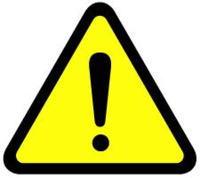
Think again!
“Tolerance and dependence can develop if benzodiazepines are used regularly for longer than 2-4 weeks. There is no minimum dose, for example tolerance and dependence have been observed after the regular use of 2.5-5mg of diazepam.”
Professor Heather Ashton: Emeritus Professor of Clinical Psychopharmacology, University of Newcastle upon Tyne, England
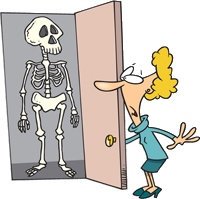
It seems the truths about the potential dangers of benzodiazepines are slowly coming out but with so many cases of prescription dependency worldwide there is clearly a long way to go.
Also, in my experience it appears as if dependency to prescription drugs leans toward a subject of taboo – almost as if society is succumbing to it.
However, is keeping these problems locked up in the closet going to help anyone or change anything?
At first it was difficult sharing my case and story online because it necessitated disclosing personal information, however, I felt the need to come out and help raise awareness outweighed this…
Stevie Nicks: Tell me Lies
Doctor: Benzodiazepines will help to calm you down and keep you from going back to coke…

"Singer Stevie Nicks has publicized the dangers of Klonopin (benzodiazepine) by describing her own detox from the prescription drug as "hellish" and worse than withdrawing from cocaine or heroin.
"Klonopin turned me into a zombie,” she told US Weekly in 2001.
Cause for Alarm!

Consider this extract from:
A Review of David Healy's “The Psycho-pharmacologists III” by Professor Heather Ashton
How is it that the pharmaceutical industry has come to dominate the field?
Healy points out that drug companies “are now not simply confined to finding drugs for diseases. They have the power to all but find diseases to suit the drugs they have”.
Pierre Simon (Sanofi Pharmaceuticals) remarks: “In the beginning the pharmaceutical industry was run by chemists.
This was not so bad... Now most of them are run by people with MBAs... people who could be the chief executive of Renault, Volvo or anything.
They don't know anything about drugs.” The problem comes when a chemist presents an interesting drug to the financial analyst, who asks: “What is the market?”
The chemist has to decide for what indication the drug will be developed. If the indication is not there, it must be created.
Seems people are all saying the same things over and over…

- I was like a zombie
- It felt like I was in hell
- It was much harder to come off benzodiazepines than anything else I'd ever had before
- It took a chunk of my life away
- It has destroyed my life
- The doctor never told me they were addictive / The doctor told me they weren’t addictive
- When I complained my condition was worsening the doctor prescribed me more...
It was difficult to get any relief from the ongoing symptoms
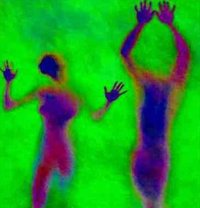
Unlike injuries where you may get some relief from adjusting your posture etc, with drug dependency in my case, the pain was both mental and physical and ran 24/7 regardless…
This page has been set up to give readers the opportunity to share their comments.

If you wish to send a message of your own please do so by sending an email through the contact page.
Alternatively, you can use the Benzo Case Japan facebook page.





